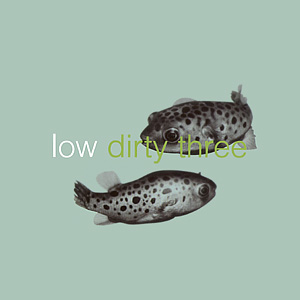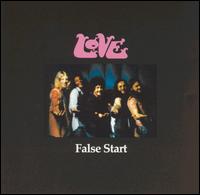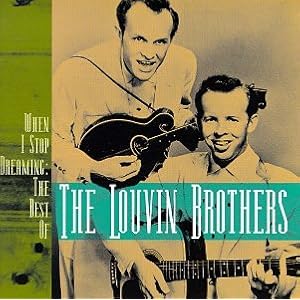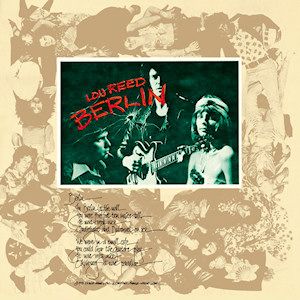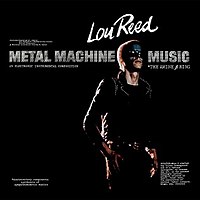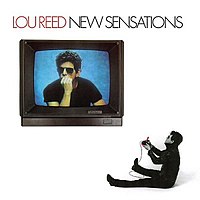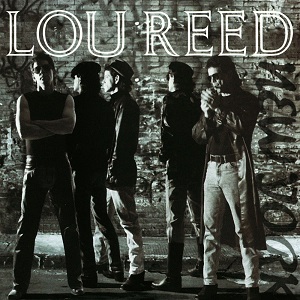When I was young and firebellied with my head bursting with education and the sheer thrill of being alive, I could have explained Kant's
Critique of Judgment to you, and you might have even found my explanation interesting. But my memory and understanding of Kant's system of aesthetics have gone the way of my rudimentary understanding of the Russian language, so Прости меня. I do recall that Kant lays out his taxonomy of art at one point, and he places music in the highest, least touchable, most ineffable category, because - and I am likely getting this wrong - he argues that music is the artform least affected by reason.
There's, of course, much more to philosophy than Kant, but his ideas were the touchstone for pretty much all of Western thought. I forget which of his followers took his ideas of sublimity and attached them to dynamic conflict (Schopenhauer, maybe? This sounds like him). But whoever that dead German guy was, he was sure right.
One of the things that I most like to hear as a listener to music is the embrace of opposites, the way that great musicians take two mutually exclusive ideas and turn them into harmony - or, at least, a pleasing and harmonious disharmony or anti-harmony - without losing their essential components. This is sublime: the semi-synthesis of opposites. Arthur Lee, I say unto you, was a master of the sublime.
Arthur Lee was the frontman for Love, a multiracial rock band when there were few other multiracial rock bands. Love played music that was simultaneously crude garage rock and ultra-sophisticated chamber pop. Love's greatest album
Forever Changes manages to rock like hell while rarely touching upon any of the key elements of rocking like hell. In his excellent 33 1/3 book on
Forever Changes, Andrew Hultkrans calls Lee prophetic, visionary, and apocalyptic. He's dead right about the last two, but fortunately Lee is about as prophetic as The Book of Revelations, which is to say: not at all. But I don't know that anyone has ever created apocalyptic rock with the fervor of Lee. Most of his subject matter seems married to a metal sensibility, but, as I say, Love had no metal. And I generally can't understand metal vocalists, anyway.
Love (1966). The first album starts with a blistering garage version of Burt Bacharach's chordy and jazzy "My Little Red Book," which showcases how well the band straddles opposition. The rest of the album is okay, if a bit derivative of The Byrds. Lee's heroin anthem "Signed D.C." is a stunner and their version of "Hey Joe" cooks pretty well. My version has both mono and stereo versions of the songs on it, and the mono versions, as you might guess, sound significantly better. Also included is the pretty great "No. Fourteen," which was the b-side to "7 & 7 Is."
Da Capo (1967). I like to pretend that
Da Capo is an EP. See, the first side to this short album is the very definition of essential music. This is where Love solidifies its sound: driven by harpsichord (of all things!) and flute, packed with ballads, and yet it still rocks like hell. There is almost nothing like it. The six songs of the first side drive relentlessly to the explosion that culminates "7 & 7 Is" and then settle back with "The Castle" and "She Comes In Colors." Then the second side is a turgid yawn of a 19-minute blues jam called "Revelation" that is anything but. I can only think of two other bands that made EPs-leading-to-LPs with such a sure hand: the Minutemen (with
Buzz Or Howl Under The Influence Of Heat leading into
Double Nickels On The Dime) and Mission of Burma (
Signals, Calls and Marches leading into
Vs.).
Forever Changes (1967). Sublime is the word. It sounds so organic, such a melding of five different personalities into one great whole of a band (as depicted in the cover picture) that its surprising to learn how fractious the recording was. The legendary Wrecking Crew (in this case Hal Blaine, Carol Kaye, Billy Strange, and Don Randi) plays all of the instruments on two tracks ("Andmoreagain" and "The Daily Planet," the latter arranged by Neil Young) because the members of the band were so sick and angry with each other that they couldn't or wouldn't record together. Perhaps living in the same house wasn't such a good idea. But they got their act together and recorded the music on the rest of the album (sans Snoopy Pfisterer, who drummed on
Love and played harpsichord and organ on
Da Capo). And the music looked into the darkness and doubt of LA's Summer of Love and turned it into a brilliant folk-flamenco-garage-chamber-artpunk document of the times falling apart. No one bought it, though, and Arthur Lee disbanded the group. According to legend, guitarist Johnny Echols and bassist Ken Forssi took to robbing doughnut stores with plastic water pistols. Rhythm guitarist and co-songwriter Bryan MacLean got into drugs and then Jesus and only made two more albums before his premature death in 1998. Ken Forssi died that same year, come to think of it. And Arthur Lee died in 2006. What a bummer this review is turning into! But the album itself has bummer lyrics, albeit sublime bummer lyrics. And sublime music. I have friends who don't like or get this album, but I hope that someday they will.
Four Sail (1969). Too much a showman to let his fame go to waste, Arthur Lee rounded up a new group of musicians and lo and behold, it's pretty good. I mean, it's not Love, really. All of the gentle touch is gone: the songs are pretty much garage-y folk-rock through and through. But the songs still have Arthur Lee's twisty way with words and structure, and a few genuine first-rate songs in "Robert Montgomery" and "Singing Cowboy."
Out Here (1969). Consisting of pretty much everything recorded at the
Four Sail sessions that didn't appear on
Four Sail, this is where Lee starts to seriously dilute the Love name. I mean, it's a double album that runs the gamut from truly sublime work to and handful of utterly silly and pointless songs. And there's a definitely theme of self-sabotage that brings to mind other troubled geniuses like Alex Chilton, who allegedly destroyed the master tapes for the upbeat version of "Downs" just to spite his label. What else could explain the excruciating drum solo that Lee pins to the end of the otherwise brilliant "Doggone?" Still, for those of us who live to excavate buried treasure, there's plenty of greatness here.
False Start (1970). Listeners can be forgiven for thinking they've accidentally cranked some Grand Funk instead of the greatest psychedelic genre-smashing band of the late 60s. False Start opens with a track co-written by Lee and his pal Jimi Hendrix, but it doesn't do either any favors. The rest of the album jams along loosely with only a few glimmers of Lee's trademark wit and wisdom.
Black Beauty + Rarities (1973). Arthur Lee disbanded Love again after
False Start and set about making his first solo album, 1972's
Vindicator. He then finally accepted the truth that post-
Forever Changes Love was simply Arthur Lee and whoever he was jamming with at the time. Black Beauty includes a number of tracks from sessions credited to 'Love with Arthur Lee'. Also included on the bootleg are a bunch of pre-Love surf and rock tracks that Lee played on and a few later tracks.
Reel To Real (1974). Arthur Lee sounds almost like Al Green on some of these tracks, and I mean that as a compliment. One of the essential ingredients of Love's sublimation of opposites is its identity as a multiracial band playing a wide array of music that rarely dips into R&B or blues. It was music mostly sung by a black man who sang nothing at all like how many people thought that a black man should sing.
False Start, on which Arthur Lee made a claim to be the toughest black man in rock music, sounds false. And yet here, the Memphis-born Lee lays a claim, strongly, to the region's sweet soul music. He doesn't forget who he is. In fact, with all of the folky elements and psychedelic elements that he swirls into his soul music, this is his most successful album since
Four Sail. Maybe since
Forever Changes. It still has problems, but it also sounds heartfelt and meaningful and that counts for a lot.














